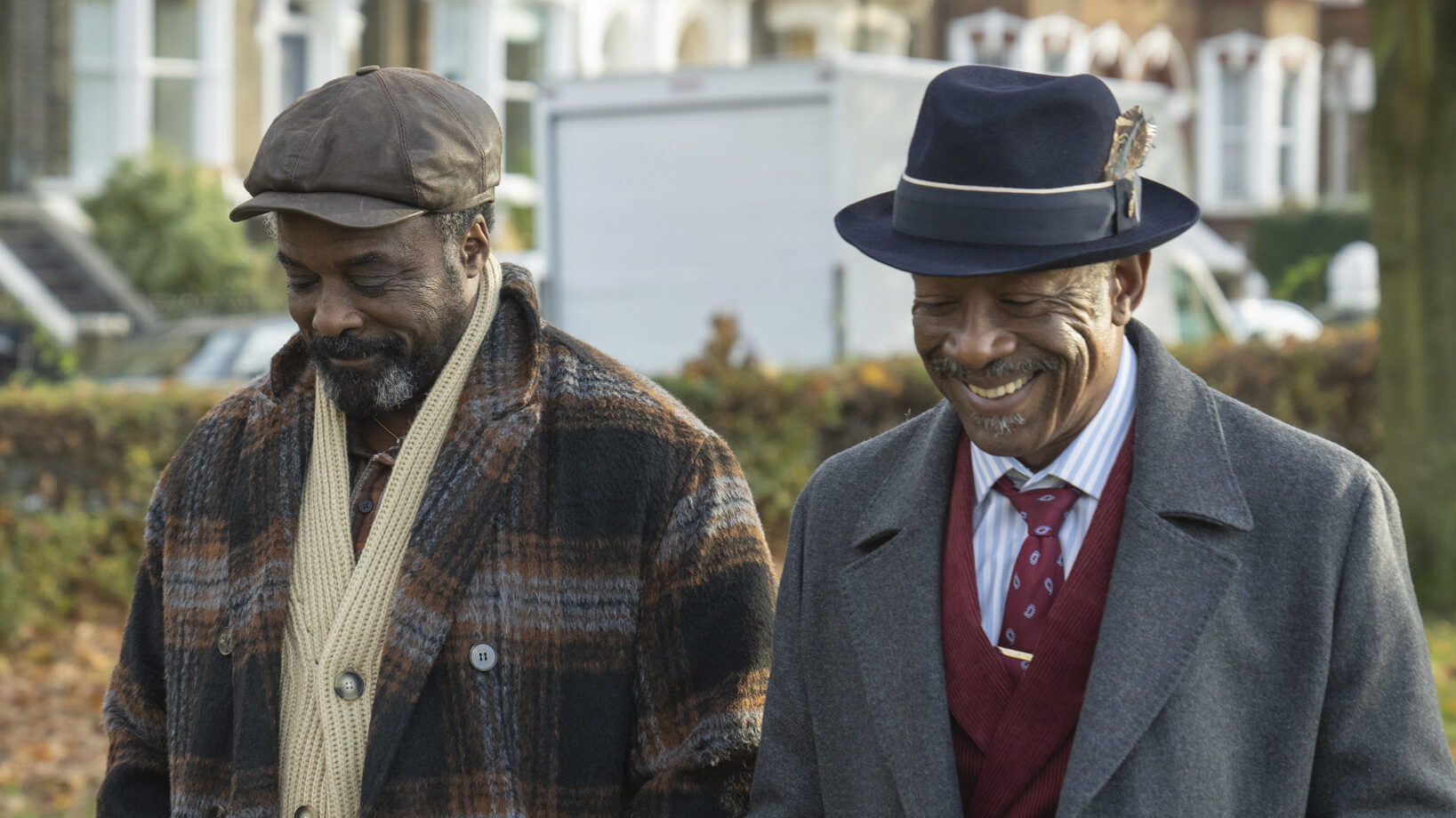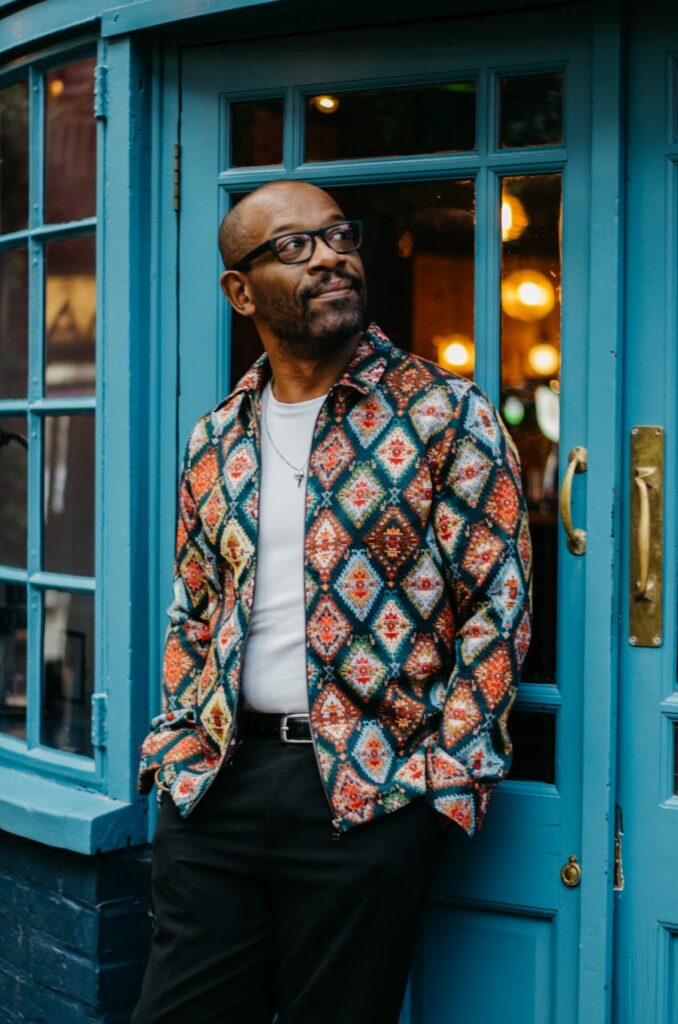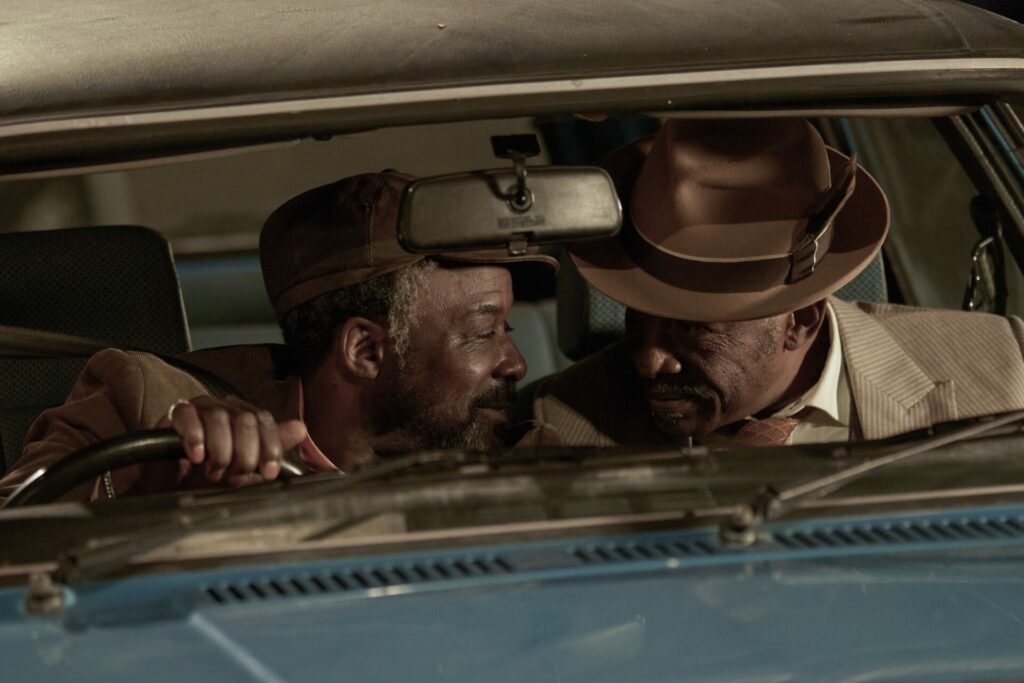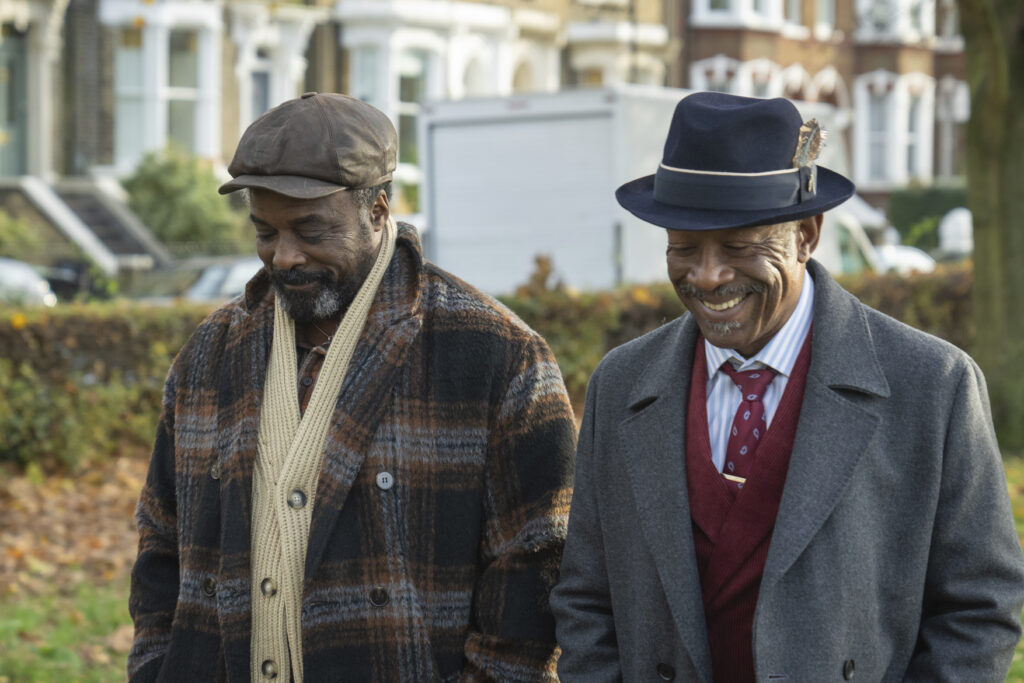Lennie James on new BBC TV show Mr Loverman, about a ‘six-decade love affair’ between closeted men
Actor Lennie James tells Attitude why he hopes the story of his new show, in which he plays the lead, will spark conversations among the British Black community

“It’s about time,” actor Lennie James proclaims. Seldom are two gay Caribbean-born elders at the front and centre of a British primetime television drama, but that’s all about to change with Mr Loverman, the BBC adaptation of Bernardine Evaristo’s award-winning novel of the same name.
James is at the helm of this seismic series, playing the lead part of Barrington Jedidiah Walker, and he couldn’t be prouder that this complex queer Black love story is stepping into the light. “It’s a crucial and important story, particularly within our community, to be having, especially amongst a generation that is largely ignored or hugely stereotyped,” he says.
Mr Loverman, published in 2013, has been transformed into an eight-part BBC series by Nathaniel Price (Noughts + Crosses). It tells the story of 74-year-old, Antiguan-born Barrington, an exuberant Hackney man who is well known for his distinguished style.
Known as Barry to his loved ones, he has been married to wife Carmel (played by Sharon D Clarke) for 50 years. However, throughout their relationship, he has been harbouring a monumental secret: he is in love with his best friend and soulmate Morris De La Roux (Ariyon Bakare) — and always has been. Now, in the evening of his years, he has big decisions to make that will have consequences for his nearest and dearest.

James always knew that he wanted to be involved in developing Mr Loverman for the small screen — and was prepared to fight off any competition if it came down to it. “I said yes to this project before it was even offered,” he tells Attitude in an interview ahead of the drama’s launch. “I attached myself to it whether people liked it or not. The minute I read the book, I said to my agents, ‘Let’s keep an eye on this.’ It was something that I was willing to get into the gladiator pit to secure.”
Like the book, the television adaptation is set in 2010 and uses flashbacks to travel back through the multitude of harsh cultural landscapes and attitudes that kept Barry and Morris from existing as out and proud gay men. They were both born in 1940s Antigua, a small island in the Caribbean with strong Christian values. Same-sex relations were only decriminalised in Antigua in 2022, while same-sex marriage is not yet recognised. With the threat of imprisonment and the risk of violence and social rejection, Barry and Morris married women. They then immigrated to the United Kingdom, where they witnessed the horror of the HIV/AIDS crisis and lived under Section 28. Their shame is deep-rooted. And for Barry in particular, it weighs heavy on his shoulders.
“At its core, Mr Loverman is a story of a six-decade love affair between two men who haven’t been able to be out,” James, 58, notes. “But it’s also about the consequences of Barry’s choices on the man he loves, the woman he’s married, and the children he’s raised. “It’s about his inability, his fear, his delay in living his own truth. And, as a result, it also has stark consequences on his own life. I think to say it’s a coming out story is absolutely the truth, but it goes so much deeper than just a coming out story.”
James’s acting career spans over three decades. He played crooked copper DCI Tony Gates in the very first series of Jed Mercurio’s acclaimed police drama Line of Duty. He starred as Morgan Jones in post-apocalyptic drama The Walking Dead, and its spin-off, Fear the Walking Dead. More recently, he created, directed and starred in his own Sky series, Save Me, and its sequel, Save Me Too.
While in some ways Barry resembles James’s previous roles, the intricacies of Barry’s essence were more challenging to depict. “I like to play characters with an internal struggle,” says James. “I like to play characters that I can translate what’s going on with them as much as through what they’re thinking and what they’re saying. Barry is all of that on steroids. I think one of the reasons why he took a little bit more effort than some of the other characters I’ve played in the past is every moment of his being has nuance, every moment of his being has complexity.”

In recent years, there has been extensive discourse over whether straight actors should play gay characters. In March, Eric McCormack, who famously played gay New York City lawyer Will Truman in the hit sitcom Will & Grace, spoke out in defence of the debate. “I didn’t become an actor so I could play an actor,” he declared on Good Morning Britain. More recently, Red, White & Royal Blue star Nicholas Galitzine told British GQ that he feels an element of guilt about accepting queer roles and questions “whether I’m taking up someone’s space”. James is married to Giselle Glasman, and together they have three children.
Indirectly addressing why he was a good candidate to play Barry, James reasons that Barry has masqueraded as a straight man his entire life. “He has successfully hidden who he truly is so well and to such an extent that his wife believes him to be a straight lothario, as opposed to the gay man that he is. That informs how Barry operates in the world.”
James shares the screen with fellow actor Ariyon Bakare, whose television credits include the BBC adaptation of Philip Pullman’s fantasy drama His Dark Materials and the Prime Video crime drama Carnival Row. Before production began on Mr Loverman last year, the two of them sat down and spoke honestly about what they hoped for the series, as well as what they wanted to avoid. “It was important that we got together, away from everybody else,” says James. “So, Ariyon and I went out for a coffee, and we were just honest with each other about our fears, our expectations and our ambitions for the piece.
“We had to look after each other both emotionally and physically because it was going to be exposing, and we were about to go on their journey to get there, so we just needed to start off in the right place. And, luckily, he’s good, people. He was easy to get on with.”
Rarely do audiences see two gay Black men show affection on the small screen, let alone make love, but Mr Loverman is finally breaking the taboo. During filming, both James and Bakare worked closely with intimacy coordinator Robbie Taylor Hunt to help form Barry and Morris’s physicality with each other. Because of their history together, coupled with the fact they’ve been prevented from publicly living their authentic truth, establishing how they interact and communicate in public was just as important as crafting how they behaved behind closed doors.

“I think that sometimes we underestimate the importance of an intimacy coach because we’ve existed so long without them,” admits James. “But the conversations that they engender and encourage you to have are incredibly useful, and bring up things where you go, ‘You know what, I don’t know if I would have voiced that.’
“All those conversations were things that we needed to talk through, such as when we needed to gain permission to touch each other in particular ways, to rest our heads on each other in particular ways. And that was important because physical touch is a large part of their love story,” James points out. “These are men coming from a generation of gay and queer men for whom their acts of loving could be punishable by death in the place that they come from.”
When it came to translating context into physical touch and intimacy, he adds, “It was important for us to be specific about why it is hard for these men and not to be generalised about it. The only way we could be true to their circumstances is to be specific about their circumstances.”
In addition to Barry’s romance with Morris, Mr Loverman also explores his complicated 50-year relationship with his wife. Three-time Olivier Award-winner Sharon D Clarke has been on our screens for decades, having appeared as Lola Griffin in Holby City and Grace O’Brien in Doctor Who. Clarke and James have known each other for over 30 years, having both entered the industry at the same time, but Mr Loverman marks the first time they have worked together.
“Finally getting to work with Sharon was a gift,” beams James. “And one of the things I’m very proud of is how we’ve depicted Barry and Carmel’s love story, because they’re also hiding and presenting something to the world. I don’t think Barry’s story is possible to examine without taking on board Carmel’s story: what it does to Carmel and what she does to get out from under it to find some kind of redemption for herself. It might be a fucked-up one, but there is a love story there.”
Because Barry is hiding in plain sight, Mr Loverman is dripping in subtleties. A large part of achieving this was through Barry’s wardrobe, which was brilliantly created by costume designer Jodie-Simone Howe. “We wanted him to be well dressed, but not a dandy,” shares James. “We wanted him to be precise and gregarious, without him being camp.
“What we weren’t portraying was a situation that when people found out that Barry was gay, they went, ‘Oh, yeah, of course.’ That isn’t how he’s written in the book, and it isn’t how Nathaniel has written him in the scripts, and it wasn’t how I wanted to portray him. Because of that, we have those moments in the first episode where Carmel is convinced that not only is he straight, but that he’s sleeping around with any woman.”
But the subtleties go beyond just James’s costumes. “Nothing’s accidental,” he says. “There’s a deliberate colour scheme. If you look at the folk around the table in the Sunday lunch scene in the first episode, the colours they’re wearing are the Pride colours.
“The amount of detail that our production designer and set designers put into the Walker house and all the other locations is second to none. And a lot of it the camera won’t reveal, but it’s there.”
There’s absolutely no doubt that Mr Loverman will be a watershed moment in British television. Not only does James recognise its importance, but he hopes that the series will inspire people to live their truth. He also hopes that it will ignite much-needed conversation, especially within the Black community.
“It’s a vital story,” he acknowledges. “It’s an ‘about time’ story, a ‘Jesus, finally, let’s have this conversation.’ It is a universal story, and it’s an important story for Black folk in this country. It’s representation and it’s important, and it’s wrapped up in a really fucking good story with really interesting and compelling and beautiful characters that you want to spend time with.”
Mr Loverman is at 9pm tonight (Monday 14 October 2024) on BBC One
